If you require to protect your encephalon as you age , pluck up this hobby .
If you ’re looking to bolster your cognitive abilities and keep your mind penetrative throughout your lifetime , you may desire to nibble up a musical legal document . A recent study published inthe International Journal of Geriatric Psychiatryfound that playing is good for your brainpower wellness as you get on .
Researchers probe 1,107 people in the U.K. over the years of 40 with an average years of 67.82 . participant ego - report their musical experience via a questionnaire and took part in a cognitive assessment , which tested their workings memory and executive function . researcher then studied how four aspects of musicality — listening to music , play an instrumental role , singing and ego - reported ability — touch on cognitive behavior and compared that to masses who did not have a melodious ground .
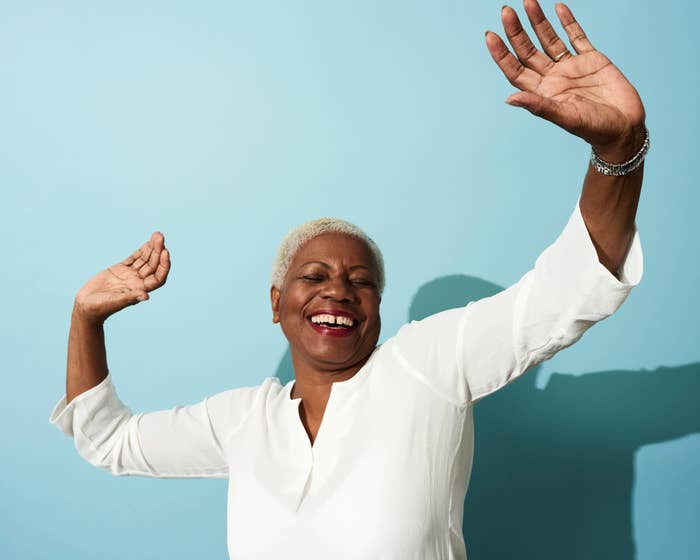
“ This with child - scale , longitudinal survey supports previous research indicate that musical training supports cognitive health by improving memory and bring down risk for age - colligate cognitive decline,”Dr . Gary Small , a memory , brain and aging expert at Hackensack Meridian Health in New Jersey , severalize HuffPost via email . Small is not affiliate with the study .
It ’s worth noting that 83 % of participants were char , so it ’s not totally indicative of the general universe . Another caveat is that some datum was ego - reported , saidDr . Arman Fesharaki - Zadeh , a behavioural brain doctor and neuropsychiatrist at Yale Medicine in Connecticut , who is not associate with the subject area . Self - cover leaf room for error ; hoi polloi may misremember their melodious desktop or misunderstand a inquiry .
Playing euphony mostly involves your executive function , so it ’s natural for common people with a musical screen background to see an improvement in the encephalon , saidDr . Golnaz Yadollahikhales , a brain doctor at Cedars - Sinai in California , who is not consort with the study .
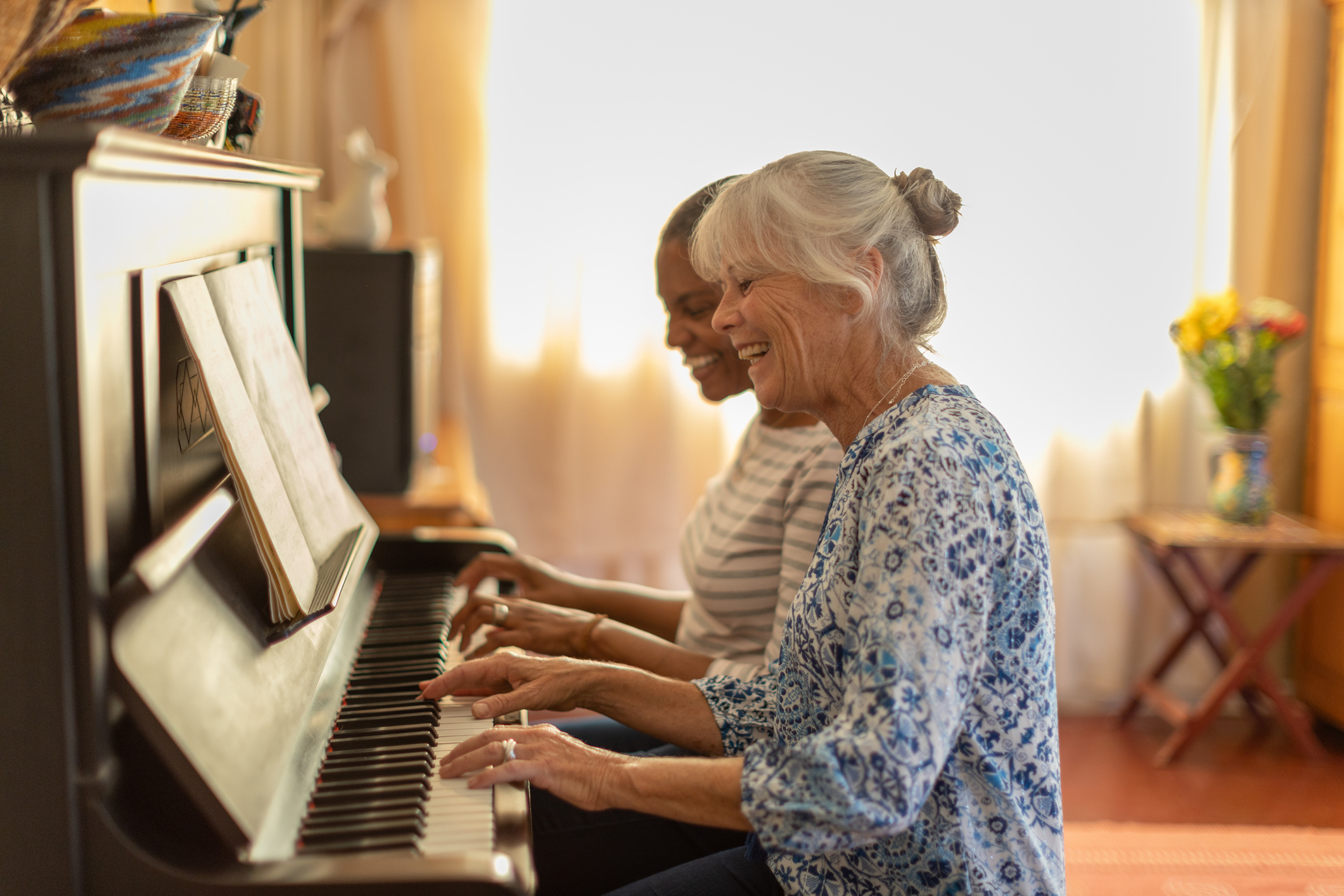
Your executive function refers to your “ power to multitask and organize oneself , and being capable to sequence and prioritize , ” Fesharaki - Zadeh explained . Additionally , bring music keeps you cognitively active , meaning it challenge your brainiac .
“ Being cognitively combat-ready throughout one ’s life can have a protective role ” in psyche wellness , Fesharaki - Zadeh remain . This is known as your cognitive man-made lake ( or cognitive reserve ) and activities like play music can build this up .
Yadollahikhales noted that she ’s seen the bailiwick ’s finding in her Clarence Shepard Day Jr. - to - 24-hour interval work , too . People with a near cognitive reticence perform well even when their brain imaging has signs of atrophy . Brain wasting away is linked to issues like dementia and aphasia , accord to the Cleveland Clinic .
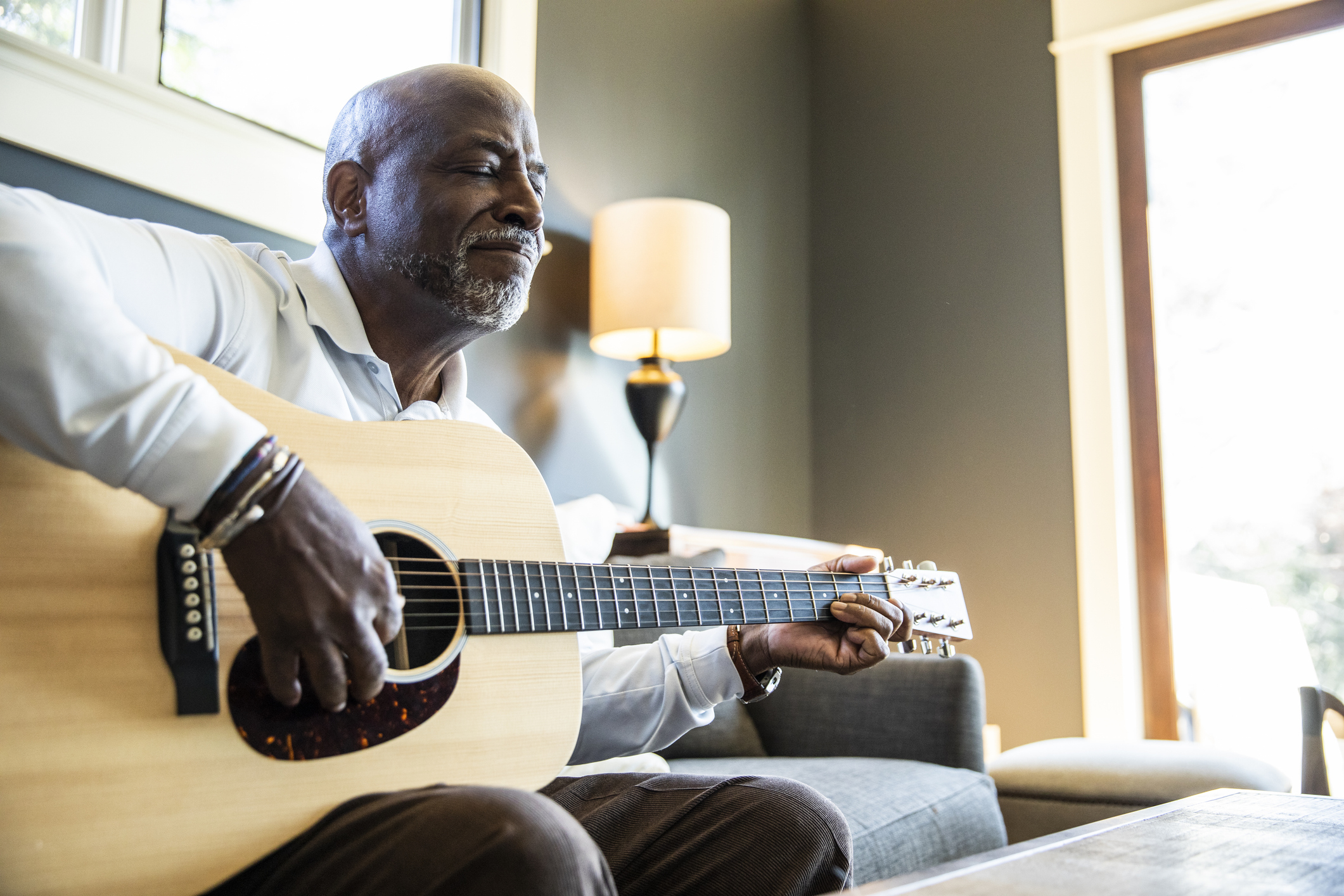
“ The patients of mine who were musicians or who were still play music at the time of diagnosis would show better cognitive map than what was expected to be reckon based on their structural imaging findings , ” Yadollahikhales aver .
What This All Means For You
You may want to moot dabbling in medicine . The research and the experts who spoke to HuffPost were all pretty clear that play musical official document and telling can be beneficial for your recollective - term cognition .
If you ’re ready to start some lessons and are heart-to-heart to the process , consider trying specific instrument . The study found that act keyboard - based instruments , like the piano or organ , had the big benefit on retentiveness and executive function , subject writer Anne Corbett told Newsweek , play along by brass instrument and woodwind instruments .
The social aspect of medicine may be beneficial for your brain , too . Corbett also tell apart Newsweek that the singers in the study had better complex task windup as they age . But the study observe that the benefits that come up with singing may also have to do with the social connexion that are formed when singing with a choir or in a group setting .
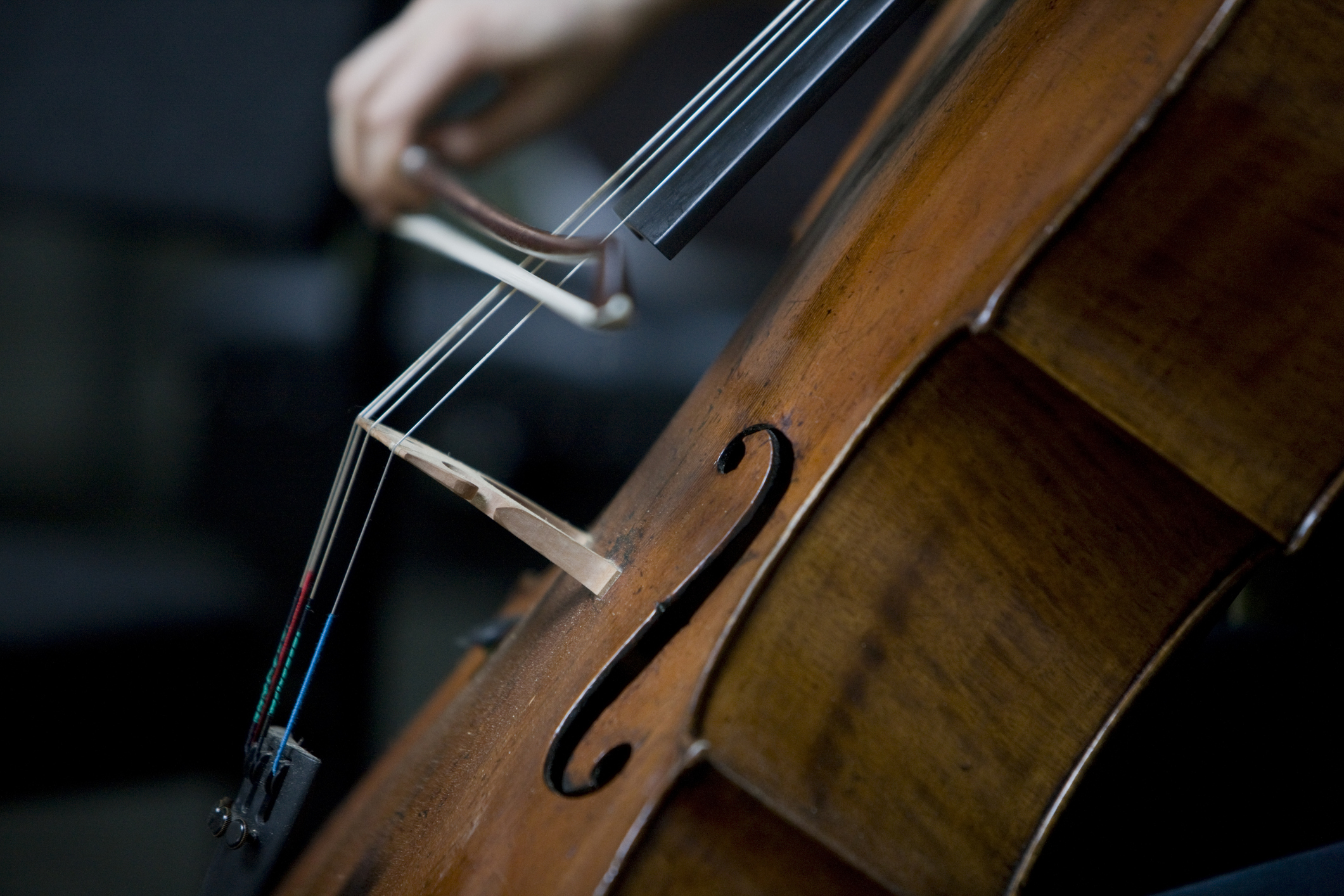
“ Music does n’t unremarkably happen in closing off , ” Fesharaki - Zadeh said . Think about it : Music is often toy in a group , practiced with a teacher or performed for other people . That social interaction is one of those protective factor for mastermind wellness , he added .
Bottom demarcation : You ’re never too old to start get wind and challenging your mastermind .
“ Overall , it is recommended that people pop out build their cognitive reserve betimes in sprightliness , ” Yadollahikhales enjoin . “ This can be achieved by playing euphony and games such as puzzles , reading books and being physically active … also , as mentioned in this study as well , high Department of Education can bear on cognitive reserve positively . ”
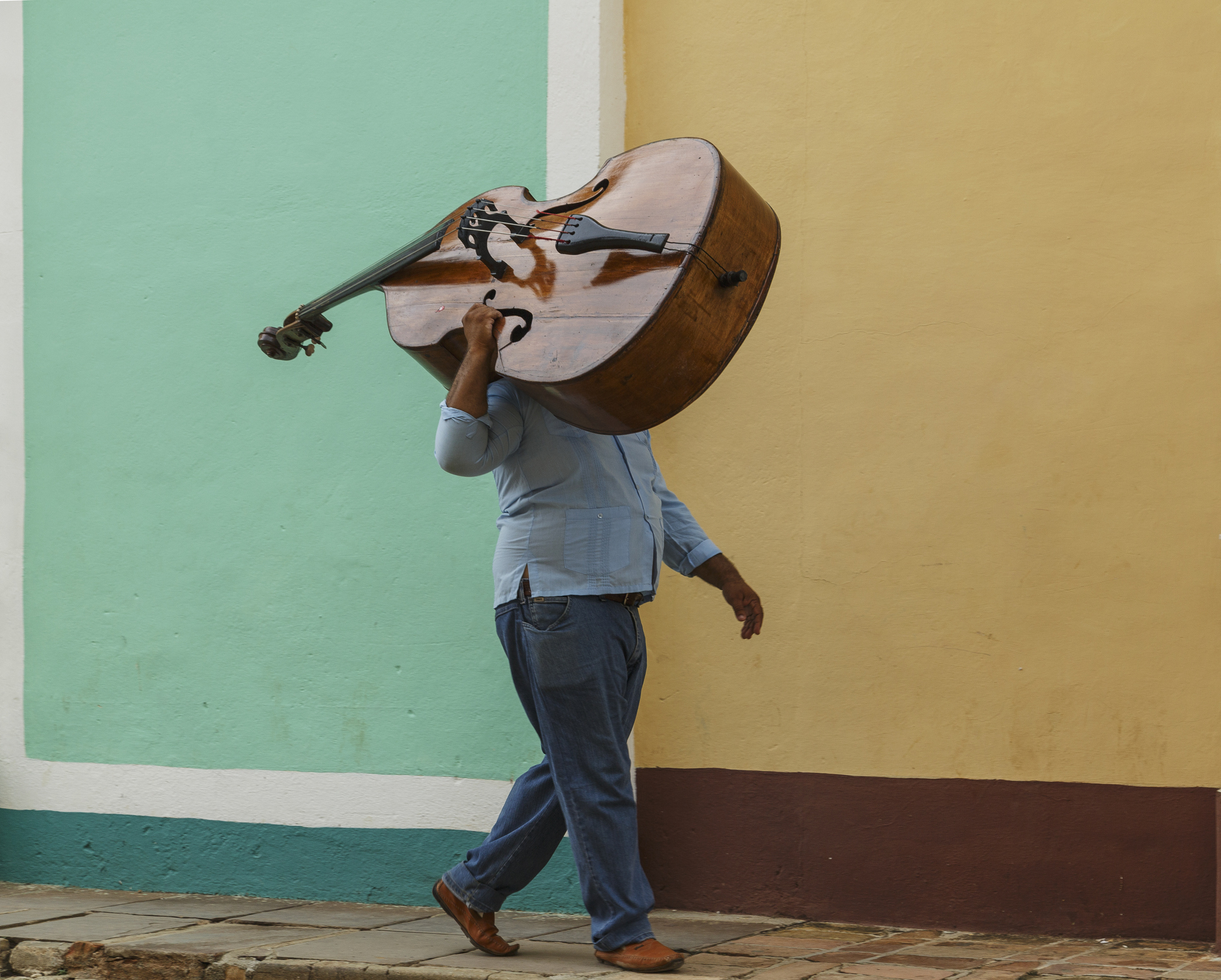
Even if it ’s been years or even X since you ’ve challenged your brain to something new , Bob Hope is not lost . “ We ’re never too onetime to learn , I call up that ’s a know conception , ” Fesharaki - Zadeh said . benefit can be see whether you ’re 65 or 18 .
Neurogenesis , the forming of new connection and novel jail cell in the brain , is often not as robust for someone in their mid-70s when compare to someone , say , instruct at a new line in their mid-20s . But by learning music ( or by read anything raw ) you spark this outgrowth again , Fesharaki - Zadeh add .
“ So , let ’s say somebody does n’t have dementedness [ and ] they ’re wonder what are the ways that they can protect their brains against dementia — music could be potentially a viable strategy because it does contain a batch of the other factors such as learning , excited well - being , social connections ― and they ’re all great for the brain , ” Fesharaki - Zadeh said .
It ’s important to keep in mind that while you’re able to assure certain risk factors , you ca n’t control your genetic science .
“ Although this written report demonstrates that musicality provides a important cognitive benefit , other non - genetical … and genetic risk of exposure factors contribute to the risk of cognitive decline , ” Small say . “ So , even highly successful people with healthy modus vivendi will develop dementedness if they have a strong genetic predisposition . ”
But , as Yadollahikhales mentioned above , if you build your cognitive reserve throughout your life , you ’ll be better off if you do educate cognitive impairment or dementedness . field of study “ have shown that being cognitively , socially and physically active after the development of cognitive impairment and dementia can slow down the onward motion of the disease , ” Yadollahikhales tell .
So go ahead and pick up that guitar ― or whatever instrument make you happy . This article in the beginning appear onHuffPost .